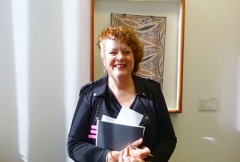“The mediocre teacher tells. The good teacher explains. The superior teacher demonstrates. The great teacher inspires.”
As I pen this piece, my mind takes me back to this quote by the great American writer, William Arthur Ward.
Teaching is inspiration. Good teaching is often viewed as something that comes naturally when it’s a skill – one that takes time, reflection and investment.
As a community, we have shown amazing resilience as we have adapted to rapid and sometimes confronting challenges. We have been truly stretched and pulled in these last two years. It is as simple as the metaphor of a rubber band.
Yet this metaphor is also complex. Vulcanisation gives the rubber durability and flexibility to snap back. But did you know when a rubber band is stretched to its limit, sometimes it doesn’t break but returns slightly larger?
This metaphor leads me to wonder: do we want to snap back to how things were before, or have we undergone something transformative? It would be sad to have survived all this without gaining something from it!
The pandemic has illustrated the role of good teaching and a better understanding of how disciplinary expertise is essential for developing quality teaching practices. It has provided an opportunity to reflect on all facets of higher education including course design, curricula, maintaining and developing disciplinary knowledge. Universities now have a greater appreciation for a need for specialists who can devote their time and passion to create an excellent educational experience for our students. But if you speak to the academics at the forefront of this dynamic, they will point to an immutable truth – our teachers today need both pedagogical and disciplinary knowledge to support good teaching.
What changes do our universities need to put into effect to support that?
American composer Scott Hayden once said “teachers have three loves: love of learning, love of learners, and the love of bringing the first two loves together.” Looking back at my career and my academic journey, I sometimes reflect on the excitement that had come from my own exploration, discovery and experimentation. And I ask myself: how do I recreate that in my classroom?
Our students need to be prepared for an increasingly complex and constantly evolving world. Their “learning needs an authenticity, that the work being done in classrooms is ‘real work’ that reflects the living realities of the discipline being taught” (Friesen and Jardine, 2011).
Education focussed academics are expected to maintain and build high levels of disciplinary expertise in their teaching and apply industry knowledge in their curriculum. To facilitate this, universities need to incorporate professional development and training, and allow education focussed academics to attend conferences to maintain currency in the field that directly contributes to their teaching practice. What we really need our institutions to do is re-examine how the work of education focussed academics is valued, supported and recognised, thus ensuring the continued viability of these roles.
About the author:
Professor Lutze-Mann is the Director of Education in the Portfolio of the Pro Vice-Chancellor, Education & Student Experience (UNSW). She is one of the inaugural members of the UNSW Scientia Education Academy which recognises UNSW’s most outstanding educators for their leadership and contributions to enriching education.
During her tenure at UNSW, Prof Lutze-Mann has been the Director of the Education Focussed Program. She has also been the recipient of nine teaching awards, including a National Teaching Excellence Award in 2014.
